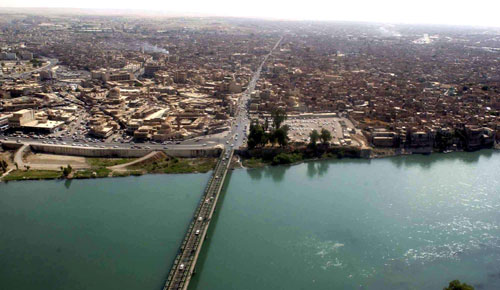In an effort to retake the city of Mosul from ISIS, a coalition of forces consisting of various governments has begun the grueling task of flushing insurgents out of the city. While many of the terrorist organization’s leaders fled the city before the fighting began, ISIS has retained roughly 4,000 to 8,000 fighters within the sizable Iraqi town. Yet, as forces from Iraq, Kurdistan, Australia, and the United States converge, an unbeknownst threat has emerged — the possibility for external violence within bordering E.U. nations.
Although retaking Mosul is pivotal in reducing the regional power of ISIS in Iraq, a significant dilemma facing leaders is the risk of terrorists fleeing elsewhere within the region. While there has been increased surveillance to prevent radical fighters from leaving the town freely, there are thousands of refugees desperately departing Mosul each day. The repeated bombardment of ISIS strongholds within the city creates humanitarian issues, an avenue through which many fighters could escape undetected. According to a report by NBC, “…About one-fifth of ISIS’s total number of fighters, or 3,700 people, are residents or nationals of Western Europe, including 1,200 from France alone.” This means that fighters within Mosul could use their documents to stream back across the open European Union borders.
Once in the E.U. zone, Islamic State fighters could pose significant threats to public safety, especially through the use of lone wolf attacks. Escaped ISIS fighters could individually arrange harmful acts against citizens, using smaller attacks unaided by counterparts in Syria. Similarly, fighters could conduct strikes such as the one that occurred in Nice, France, which killed 86 people and injured hundreds more. Additionally, experienced terrorists could implement Al-Qaeda style assaults, organizing coordinated strikes like those in Paris last year.
Fleeing ISIS fighters poses another significant problem for the safety of Europe. Those who successfully evade coalition forces could return to their homes and influence neighbors with radical Islamic ideology. These individuals don’t often participate in violent demonstrations; rather, they impart their beliefs upon those who attend mosques within their local communities. Preferring dissemination of religious theory over violent attacks, these extremists attempt to influence faith groups using radicalized teachings from Syria and Iraq. Although many would ignore these messages — seeing as many Muslims are entirely peaceful — the possibility of recruiting additional members is tenable. This makes random strikes dangerously possible.
However, as coalition forces surround Mosul, it is becoming increasingly difficult for ISIS fighters to use their E.U. documents to reenter their respective nations. As the Washington Post reports, “The trip has been made harder by Turkey’s sealing of its border with Syria, a step that has significantly cut down on traffic in both directions.” Furthermore, many ISIS fighters have already been identified by European intelligence agencies, as those traveling to Syria and Iraq get automatically flagged. Yet, there are still significant issues with ensuring that ISIS fighters don’t find their way back across neighboring borders. In the city of Mosul, there are nearly 1.5 million residents still living among the chaos.
Unlike Donald Trump’s assessment of Aleppo during the second presidential debate, Mosul has yet to fall completely. This has prompted the UN to establish an enormous presence within the region. With ISIS fighters burrowing into civilian areas, it’s expected that nearly 700,000 innocents will flee the city as fighting intensifies. Thus, refugee camps have been established to provide relief to these citizens. However, this massive tide of refugees could hide ISIS fighters with E.U. documentation. These are the individuals that security officials are most worried about.
Military officers must weigh the impending threat that now emerges from Mosul as the coalition of forces approach the city. While Turkey has cut off its borders, this step cannot prevent every ISIS fighter from fleeing the region. The terrorist organization is assuredly capable of adapting to restrictions on travel from Iraq and Syria. This creates a potential for terrorist acts abroad, especially within nations such as France, Belgium and Germany. While recapturing Mosul is crucial in establishing a strong Iraqi government, it’s important to maintain focus on the implications of taking the city back from ISIS. Although it’s impossible to accurately measure the amount of Islamic State fighters fleeing the region, E.U. officials must now adapt to the security threat posed from a rapidly changing Iraq.


